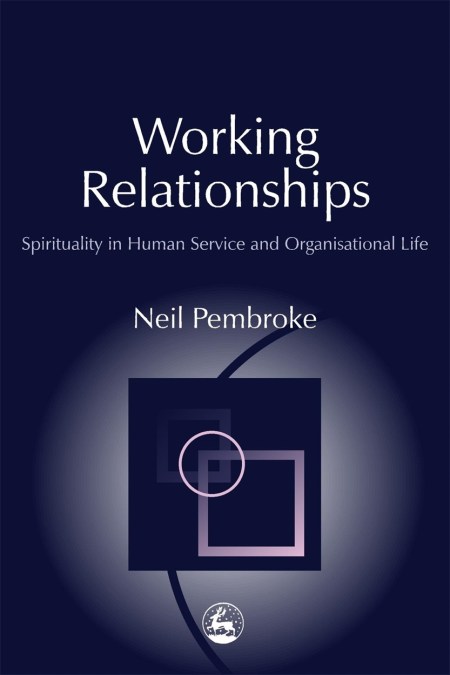We have updated our Privacy Policy Please take a moment to review it. By continuing to use this site, you agree to the terms of our updated Privacy Policy.
Working Relationships
On sale
15th April 2004
Price: £20.99
In this illuminating and thoughtful text, Neil Pembroke shows how relationships form the heart of chaplaincy, nursing and social care practice. Developing ideas from Martin Buber and virtue theory he shows how authentic, compassionate self-communication forms the basis of relatedness in human services work.
Drawing on examples from everyday life and human services work settings, Pembroke demonstrates the importance of trust and feelings of belonging in the working environment. He considers in particular the connection between spirituality and the idea of personal charm, showing how charm can be seen as a vital component in the communication of self, which enables us to nurture the physical and spiritual well-being of those we care for.
Drawing on examples from everyday life and human services work settings, Pembroke demonstrates the importance of trust and feelings of belonging in the working environment. He considers in particular the connection between spirituality and the idea of personal charm, showing how charm can be seen as a vital component in the communication of self, which enables us to nurture the physical and spiritual well-being of those we care for.
Newsletter Signup
By clicking ‘Sign Up,’ I acknowledge that I have read and agree to Hachette Book Group’s Privacy Policy and Terms of Use
Reviews
The author demonstrates a clear understanding of the human elements that contribute to a happy, committed, successful organisation. It would make useful reading for anyone wishing to understand how to motivate and manage others in a way that promotes self - worth and self-responsibility.
This text is scholarly and authoritative, yet easily accessible. I found the subject matter interesting and sometimes challenging, as the author explores a number of core concepts, some of which have not been covered in depth, at least in relation to health care, elsewhere to my knowledge.
Working Relationships contributes to a deeper understanding of the characteristics of "quality" in human service work, and managers and public policy makers in these fields would do well to reflect on what it means to provide a truly human service. The practical value of this book is that it highlights the significance not only of a moral imagination but of the obligation that flows from that to respond, once we allow ourselves to be open to realities that communicate themselves to us. Thus, it speaks to us all to move from the inertia that comes from self-absorption towards building a communal life, justice, compassion and a concern for the common good. We are reminded that social bonds are forged not only through cooperative activity in the workplace but also through collective action aimed at shaping good political institutions. The central ideas in this book are presented clearly and logically and make it a pleasure to read.




